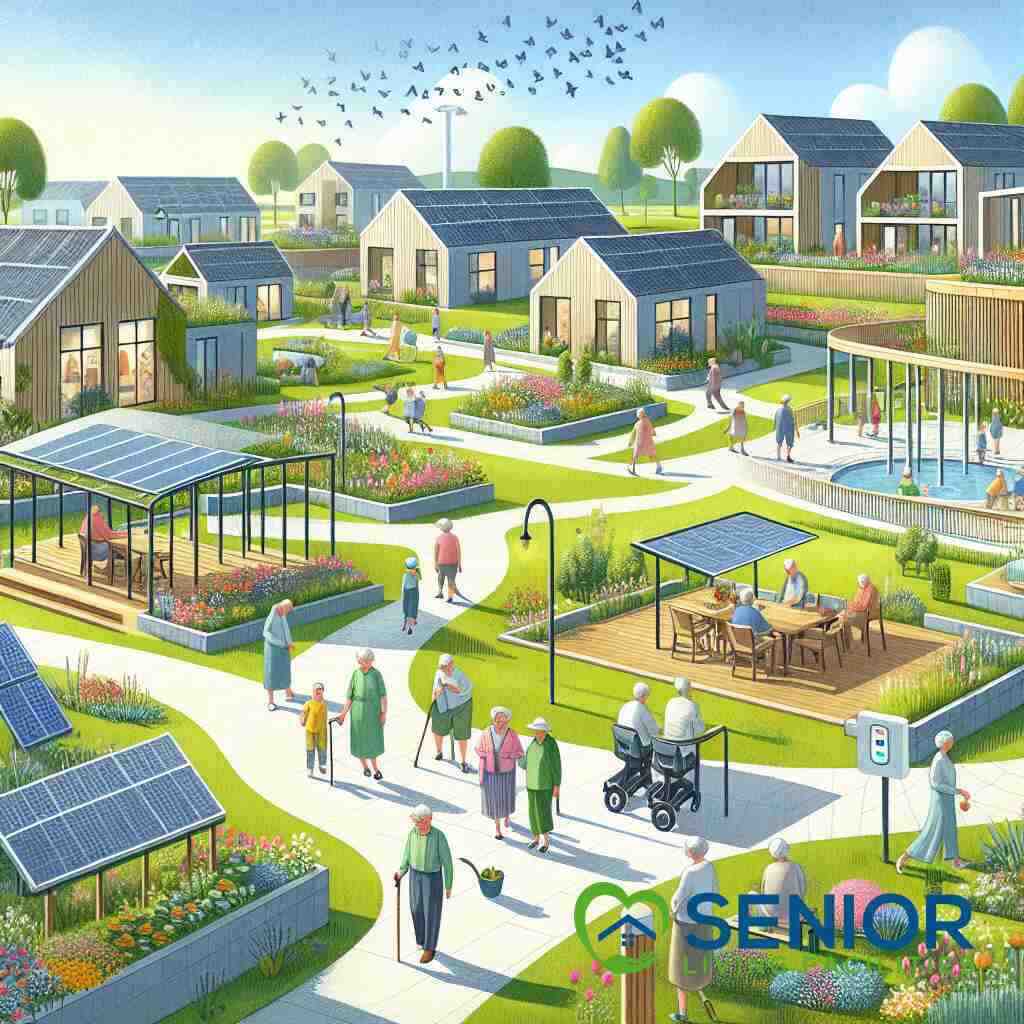
Compare: Assisted Living vs Home Care in 2024
September 20, 2024
Introduction to Senior Care Options in 2024
Evolving Needs of the Elderly
In 2024, the landscape of senior care continues to evolve, responding to the complex and diverse needs of the aging population in the United States. As life expectancy increases and the baby boomer generation ages, the demand for flexible and varied senior care options has never been more pronounced. Today’s seniors are looking for services that not only cater to their medical and physical needs but also nourish their social connections and individual lifestyles. Whether through senior living communities near me or customizable home care plans, the industry is adapting to provide tailored solutions that honor the desire for both independence and comprehensive care.
Overview of Assisted Living
Assisted living embodies a blend of independence and support, designed for seniors who need regular personal care but do not require the intensive medical and nursing attention provided in a hospital or traditional nursing home. Facilities across the U.S. provide environments where seniors can live in their private or semi-private apartments, receiving assistance with daily activities such as bathing, dressing, medication management, and more. These communities also offer rich social calendars and communal spaces, helping residents maintain an active and socially engaging lifestyle. Discover in-depth insights on the benefits of assisted living centers to understand better why this option might be the right choice.
Introduction to Home Care
Home care, on the other hand, involves various services delivered right in the senior’s own home, enabling them to enjoy the familiarity of their surroundings while receiving the support they need. Home care can range from medical care provided by nurses and therapists to non-medical assistance such as meal preparation, cleaning, and companionship. The primary advantage of home care is the ability for seniors to maintain greater independence and continuity in their personal space. For a more detailed examination of these services, explore the home care benefits for seniors.
The Importance of Choosing the Right Care
Choosing between assisted living and home care is a critical decision that impacts a senior’s quality of life and well-being. Each option offers distinct benefits, and the right choice depends significantly on the individual’s health status, lifestyle preferences, and social needs. As the array of available senior care options continues to grow and evolve, families and seniors must consider these factors carefully to make the best decision possible. Consulting with healthcare professionals and considering long-term personal needs can help in making an informed choice, ensuring sustainable and satisfying senior living conditions.
Understanding Assisted Living
Definition and Key Features
Assisted living is a residential option for seniors who require help with daily activities but do not need the extensive medical monitoring or 24-hour supervision found in nursing homes. Facilities are designed to feel less like hospitals and more like homes, providing a balance between independence and assistance. Key features typically include private or shared residences with accessible bathrooms, emergency call systems, and common areas for social activities.
Types of Assisted Living Facilities
There is a broad spectrum of assisted living facilities, from small, homelike environments to larger, resort-style communities. They can vary widely in size, appearance, and the types of services provided. Some focus on providing a more intimate setting with fewer residents, which often allows for more personalized care. In contrast, others offer a wider range of amenities akin to those found in a luxury senior living in Virginia, complete with gyms, pools, and on-site medical clinics.
Services and Amenities Offered
The range of services in assisted living facilities can include housekeeping, meals, laundry, and transportation, as well as wellness programs, exercise classes, and social clubs. Medical support typically provides medication management and assistance with daily tasks like bathing and dressing. The goal is to foster independence while ensuring safety and well-being.
Benefits of Assisted Living
One of the primary benefits of assisted living is the combination of independence and assistance. Residents have the freedom to manage their day-to-day lives but receive support when needed. Social interaction is another key advantage, as communities often provide a calendar full of activities and events to encourage engagement among residents. Further, families receive peace of mind knowing their loved ones reside in a safe environment, monitored by trained staff.
Who Benefits the Most from Assisted Living
Assisted living is ideal for seniors who find it challenging to live completely independently but do not require the high level of care provided by nursing facilities. It suits individuals who need help with activities of daily living but wish to maintain as much autonomy as possible. Additionally, those looking to thrive in a social environment, away from the isolation that sometimes accompanies aging, will find assisted living a suitable option.
Exploring Home Care for Seniors
Definition and Key Features
Home care for seniors encompasses a wide range of services provided in the comfort of the elderly’s own home, aiming to support their independence while catering to their health and daily living needs. Unlike institutional settings, home care settings allow seniors to remain in familiar surroundings, which is a vital component of their emotional well-being. Key features of home care include personalized care plans, flexibility in scheduling, and a variety of services ranging from basic assistance with daily activities to skilled nursing and therapeutic services. The services are often designed to adjust as the needs of the senior change over time.
Types of In-Home Care Services
The spectrum of in-home care services can be broadly classified into medical and non-medical care. Medical care services are provided by healthcare professionals such as nurses or physical therapists and include wound care, medication management, physical therapy, and disease-specific intervention. Non-medical care includes help with daily activities like bathing, dressing, cooking, and cleaning. Moreover, companionship services are also a significant part of home care, providing emotional support and helping to keep the seniors engaged and socially active.
Advantages of Home Care
One of the foremost advantages of home care is that it preserves independence for seniors, as they can maintain a sense of control and normalcy in their own environment. Home care also offers a tailored approach to care that is meticulously planned according to the specific needs and preferences of the individual. This personalized care often leads to better health outcomes and increased satisfaction. Additionally, home care can be a more cost-effective solution compared to assisted living, especially when the required level of care is intermediate or minimal.
Who Benefits the Most from Home Care
Home care is particularly beneficial for seniors who prefer to stay in their homes but require assistance with everyday tasks or medical needs. It is also ideal for those who have a strong network of nearby friends and family, enhancing the effectiveness of personal care and companionship. Moreover, home care is suitable for seniors with conditions that require specific routine care, such as Alzheimer’s or other forms of dementia, where familiar surroundings can play a crucial role in managing the symptoms.
Common Home Care Plans
Common home care plans are generally categorized into part-time, full-time, live-in, and respite care, allowing families to choose the level of support that best fits the senior’s and the caregiver’s needs. Part-time care could involve a few hours a week of assistance with grocery shopping or housekeeping. In contrast, full-time care might include daily help with personal care and medication management. Live-in care provides round-the-clock support, which is ideal for seniors with more intensive needs. Respite care offers temporary relief to regular caregivers, demonstrating the flexibility and adaptability of home care services to the changing demands of senior care.
Overall, each of these services is designed to uphold the dignity of seniors while ensuring they receive the necessary care in the comfort of their own homes. Whether through part-time assistance or more comprehensive care plans, home care remains a preferred choice for many families aiming to provide quality life and care to their elderly loved ones.
Comparing Costs: Assisted Living vs Home Care
Overview of Cost Structures
In 2024, both assisted living and home care continue to adapt financially to meet the demands and preferences of the aging population. Assisted living facilities generally have a pricing structure that includes a monthly fee covering room, board, and basic services with additional costs for extra services. This makes the cost relatively predictable, barring any significant changes in a resident’s care needs.
On the other hand, home care costs are more variable and depend heavily on the type of services required and the amount of care hours needed per week. Home care can range from a few hours a week of help around the house to full-time care, which can become costly. The cost-effectiveness of home care increases when the required support is less intensive, highlighting its adaptability to a range of budgetary and care scenarios.
Long-term Financial Considerations
When evaluating long-term care options, it’s crucial to consider not just the immediate costs but also the potential financial impact over time. Although initially more expensive, assisted living assisted living may prove more cost-effective for seniors in need of increasing levels of care. This setting eliminates the need for costly home modifications that might be necessary to stay in one’s home.
In contrast, home care could be a more economical option for those who are relatively independent and require less frequent care. Planning for long-term financial sustainability often involves considering the likelihood of escalating care needs and the associated costs, whether in an assisted living facility or one’s own home. Balancing these considerations with the available budget and expected quality of life is key.
Insurance and Other Financial Support Options
Navigating the complexities of funding long-term care involves a mix of personal assets, insurance, and potentially government assistance. Long-term care insurance can cover both assisted living and home care, depending on the policy. However, specifics vary widely, and understanding the exact benefits and drawbacks of each policy is critical.
Additionally, programs like Medicaid can offer financial assistance but have stringent qualification criteria that vary from state to state. Consulting with a financial advisor who is knowledgeable about elder care funding is advisable to ensure that all resources are fully utilized and costs are managed effectively.
Budgeting for Senior Care in 2024
Creating a budget for senior care starts with a clear understanding of the pricing structures of the available care options and a realistic assessment of the senior’s financial resources and care needs. It’s essential to factor in variables like potential increases in care costs due to health deterioration and the general inflationary trends in the senior living affordability landscape.
Budgeting should also include a contingency for unexpected expenses to ensure a smooth financial path forward. Tools and resources, such as cost comparison calculators and financial planning services offered by senior support agencies, can aid in accurately forecasting and preparing for the costs associated with assisted living or home care.
By understanding the nuances of each care option’s costs and preparing accordingly, families can make informed decisions that safeguard both the financial well-being and the quality of life of their elderly loved ones.
Quality of Life and Social Connections
Social Opportunities in Assisted Living
Assisted living facilities are renowned for their vibrant community settings, which offer residents residents an array of social opportunities. These environments are specifically designed to encourage interaction and foster a sense of belonging among seniors. From organized social events like holiday parties and group outings to informal gatherings in common areas, the lifestyle in assisted living locations provides numerous chances for residents to connect with their peers. This communal aspect not only enhances the quality of life but also significantly contributes to the emotional and psychological well-being of the seniors.
Maintaining Social Connections with Home Care
While home care provides a more personal setting, it also efficiently supports the maintenance of social connections. Caregivers play a crucial role in facilitating communications and visits with family and friends, as well as encouraging participation in local events and activities. Technology also plays a pivotal role; through virtual meet-ups and social media, seniors can stay connected with their community and loved ones, ensuring they remain a part of their social circles despite mobility restrictions or health issues.
Mental and Emotional Health Considerations
Both assisted living and home care recognize the importance of mental and emotional health for seniors. Assisted living facilities often employ staff trained in senior mental health, offering counseling and therapy sessions as part of their regular services. In-home care scenarios, specialized caregivers are attuned to the emotional and psychological needs of their clients, providing not just physical support but also companionship and emotional comfort. Activities specifically designed to boost cognitive function, such as memory games and creative arts, are integral parts of care programs in both settings.
Activities and Programs Available
Assisted living communities and home care services both offer a range of activities designed to keep seniors active and engaged. In assisted living facilities, residents might have access to a gym, library, and various hobby classes, which help them maintain a physically active and intellectually stimulating lifestyle. Similarly, home care providers often arrange for activities like gardening, reading, or crafts, customized to each senior’s interests and abilities to ensure they continue to engage in enriching pastimes in their familiar home environment.
Impact on Family and Caregivers
Choosing between assisted living and home care significantly impacts not only the seniors but also their families and caregivers. Families might find greater peace of mind with assisted living facilities, knowing that their loved ones are in a safe, supportive environment. On the other hand, home care can offer families the chance to be more directly involved in the elder’s daily routines, possibly strengthening familial bonds. Both options present unique opportunities and challenges in caregiving dynamics, necessitating careful consideration to align with the needs and preferences of both the seniors and their caregivers.
Medical and Personal Care Needs
Medical Care in Assisted Living Facilities
Assisted living facilities provide an intermediary level of medical care that bridges the gap between independent living and nursing homes. While they do not offer the intensive medical and nursing care of a nursing home, many facilities have trained staff available 24/7 to handle medical emergencies, administer medications, and assist with medical management. Regular health assessments are often conducted to ensure that each resident’s care plan is up to date, reflecting their current health needs. These facilities usually coordinate with local healthcare providers to offer on-site services such as podiatry, dental, and optometry, ensuring comprehensive care that supports the physical health of residents.
In-Home Medical Services
Home care offers a range of medical services delivered in the comfort of a senior’s own home, which can be particularly comforting for those who wish to stay in a familiar environment. Skilled nurses may provide wound care, administer medications, manage chronic conditions, and more. Physical and occupational therapists can also visit to offer rehabilitative services, helping seniors maintain their independence for as long as possible. This service is especially beneficial for those who may find traveling to a medical facility difficult or stressful.
Personal Care and Daily Living Assistance
Both assisted living and home care prioritize helping seniors with activities of daily living (ADLs), which may include bathing, dressing, eating, and moving around. In assisted living facilities, staff are available around the clock to assist with these needs, ensuring residents always have someone to turn to for help. In contrast, home care can be customized to the level of support required, whether it’s a few hours a day for basic help or more intensive care. Personal care services in both settings are designed to respect the dignity and privacy of seniors while providing the necessary support to promote independent living.
Specialized Care for Chronic Conditions
Seniors with chronic conditions such as Alzheimer’s, Parkinson’s, or heart disease often require specialized care tailored to their specific needs. Assisted living facilities may offer memory care units specifically designed for residents with dementia, featuring secured environments that prevent wandering and staff trained in dementia care strategies. Home care can be particularly advantageous for those with chronic conditions by providing continuous care in a comfortable setting, which can be crucial for those whose conditions affect their mobility or cognitive functions.
Emergency and Routine Healthcare Access
Access to healthcare is a critical consideration when choosing between assisted living and home care. Assisted living facilities typically have systems in place for both routine health monitoring and emergencies, including access to emergency call systems in each resident’s room or apartment. Home care might involve the installation of medical alert systems or regular visits by healthcare professionals to ensure the senior’s health is being actively managed. For routine and emergency healthcare, the goal is to provide prompt responses and effective management to maintain the health and safety of the elderly.
By focusing on these comprehensive care aspects, both assisted living and home care services address the diverse medical and personal care needs of seniors, ensuring they receive appropriate care that maintains their health and wellness.
Making an Informed Decision for 2024
As we approach 2024, making the right decision regarding senior living options becomes an imperative task that should not be rushed. Understanding the unique needs and circumstances of each senior enables families and caregivers to navigate this crucial choice with more confidence and clarity.
Assessing Individual Needs
When considering assisted living or home care, the initial step is assessing the senior’s specific needs. Analysis should go beyond current health needs and consider long-term requirements in various areas, including medical, social, and psychological aspects. Families should meticulously evaluate how different environments will impact the senior’s lifestyle, particularly their ability to enjoy and engage in daily activities, manage their healthcare efficiently, and maintain emotional well-being. Ensuring that the chosen option aligns with the individual’s values and preferences is also crucial.
Consulting with Healthcare Professionals
Consultation with healthcare professionals plays a pivotal role in selecting the most suitable senior living option. These experts can provide valuable insights into the senior’s current and potential future health needs. Whether it’s a geriatrician, a physiotherapist, or a mental health specialist, their professional recommendations can guide families towards the services that will best support the senior’s health and wellness. Access to such professional advice is critical in tailoring the care approach to suit the senior’s personal health trajectory effectively.
Evaluating Long-term Benefits
Long-term benefits are a key consideration when choosing between assisted living and home care. Families should contemplate the potential evolution of the senior’s needs and how each option can adapt to these changes. Assisted living may offer more structured support and easy scalability in medical care as the resident’s requirements intensify. In contrast, home care could provide continuous comfort and stability as it fosters staying in a familiar environment. The decision should factor in not only the immediate benefits but also how each option can sustain its value over time, supporting the aging process with dignity and respect.
Personalized Guidance and Support
Navigating the maze of senior care options can be daunting. This is where organizations like Senior Living Facilities come into play, providing personalized guidance and support to families and seniors. By exploring senior living options near Pennsylvania, for instance, families can receive tailored advice based on extensive local knowledge and sector expertise. Such personalized service ensures that seniors and their families make informed decisions that are not just good on paper but also resonate with their circumstances and aspirations.
Resources for Further Information
To make well-informed decisions, accessing a broad range of resources is crucial. Families should utilize online platforms, community resources, and senior care advisories to gather comprehensive information about the latest in senior living care. Websites like Senior Living Facilities not only provide directories and comparisons of care options but also offer insights into trends in elderly care facilities in 2024, helping residents and their families stay updated on the latest developments and enhancements in senior care services. This wealth of information can be invaluable in making a decision that best meets the needs of senior individuals.
Navigating these steps thoughtfully will empower families and seniors to select the best possible care setting, ensuring a fulfilling and enriching experience as they move forward into 2024.
Conclusion: Choosing the Best Care for Senior Living
Summary of Key Points
In this comprehensive comparison between assisted living and home care options in 2024, we have explored numerous factors that contribute to the decision-making process for senior living. Assisted living offers a community-centric environment that provides a blend of independence and care, featuring organized social activities, on-site medical services, and assistance with daily activities. On the other hand, home care delivers personalized, flexible care directly to a senior’s home, allowing them to maintain their lifestyle in familiar surroundings with tailored support.
Both options have distinct advantages depending on individual health needs, preferences, and financial considerations. Understanding these options in detail helps seniors make an informed choice that enhances their quality of life.
Final Considerations
When deciding between assisted living and home care, it is crucial to assess not only the senior’s current needs but also anticipate future requirements. Consider the level of social interaction desired, the extent of medical care expected, and the kind of support system available. It’s also important to weigh the financial implications of each choice to ensure it aligns with the family’s budget and long-term financial planning.
Steps to Take Next
- Assessment: Conduct a detailed evaluation of the senior’s needs and consult with healthcare professionals to get a clear understanding of the most suitable care option.
- Research: Utilize resources like Senior Living Facilities to explore various senior living options and compare the facilities or services offered in different settings.
- Visit and Engage: Schedule visits to various assisted living communities or interview multiple home care providers. Interaction with staff and getting a firsthand experience of the services can provide critical insights.
- Financial Review: Discuss with financial advisors to understand the coverage options and plan out the economic aspects related to the chosen senior care option.
Connecting with Senior Living Facilities for Assistance
Senior Living Facilities remain dedicated to guiding families through the maze of senior living options. Our platform not only lists various senior living communities and services across all 50 states but also provides detailed comparisons and insights to help make informed decisions. By connecting with us, you gain access to personalized guidance and support tailored to your specific needs. Whether you are considering the vibrant social environment of an assisted living community or the customized touch of home care, our experts are here to help you navigate this important decision with confidence and clarity.
By thoughtfully evaluating each option and utilizing the resources available, families can ensure that their elderly loved ones enjoy a fulfilling and dignified life in their senior years. Choosing the right senior living option is not just about meeting healthcare needs; it’s about enriching the life experiences of the seniors we love.
Frequently Asked Questions
Question: What are the main differences between assisted living and home care as described in your “Compare: Assisted Living vs Home Care in 2024” blog post?
Answer: The key differences highlighted in the blog include the environment and level of independence offered. Assisted living provides a communal living environment with structured support and social opportunities, ideal for seniors seeking a blend of independence and care. It includes on-site medical services and assistance with daily activities. Home care, on the other hand, offers personalized service within the senior’s own home, maintaining the comfort of familiar surroundings, and is highly suited for those who value their independence and have less intensive care needs.
Question: Can senior living facilities help compare cost-effectiveness between assisted living and home care options?
Answer: Absolutely! Senior Living Facilities provide comprehensive resources and tools that can assist families in comparing the cost-effectiveness of assisted living and home care. By using our cost comparison calculators and accessing detailed information on pricing structures and financial assistance options, families can make informed decisions that align with their budgetary requirements and care needs. Learn more from our blog post on How to Compare In-Home Care and Senior Facilities Near You.
Question: How do senior living facilities ensure the quality of life for seniors opting for assisted living or home care through their services?
Answer: Senior Living Facilities is committed to improving the quality of life for seniors by connecting them with the best care options. We ensure that each assisted living location or home care service listed on our platform is rigorously evaluated for quality of services, availability of medical and personal care, social engagement opportunities, and overall environment. We also provide insights into various activities and programs available in these settings to keep seniors engaged and socially active. More about these can be read in The Importance of Social Activities in Senior Living.
Question: Given seniors’ evolving needs, how flexible are the care options provided by Senior Living Facilities?
Answer: Our platform showcases a diverse range of senior care options, from independent living communities to assisted living facilities and in-home care services. Check out the Top 5 Independent Living Options Near You for Spring 2024 for more details. Each option is designed to be flexible, addressing the changing needs of seniors. Whether a senior requires increasing medical attention or wishes to downscale their care, Senior Living Facilities provide adaptable living plans and care arrangements that can be customized as the senior’s needs evolve.
Question: What role do technology and professional advice play in the services offered by Senior Living Facilities?
Answer: Technology and expert consultancy are cornerstones of the service at Senior Living Facilities. Our platform leverages advanced search and comparison tools to help families find the best senior living options near them. Additionally, we provide access to skilled advisors for personalized guidance, ensuring that each family makes the most informed decision. Together, these tools help integrate the latest trends and professional advice into families’ planning and decision-making processes.




